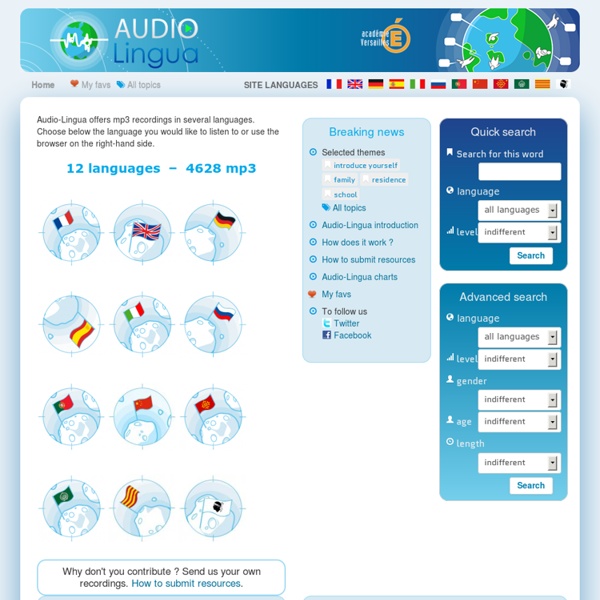



http://www.audio-lingua.eu/?lang=en
Webcomics - Pepper&Carrot A Day at School Describe a normal school day in the life of a student in your country including hours, class subjects, meals, rules, dress, and extra-curricular activities. What options are there in your country to take online classes through distance learning, even for children? Listen to the conversation by pressing the "Play Audio" button of the audio type you want to hear, and answer the questions.
Cours d'anglais, jeux, exercices, grammaire, tests